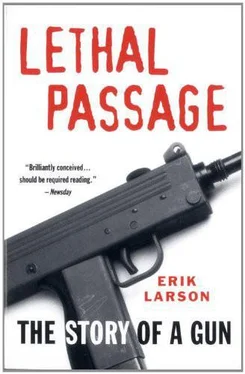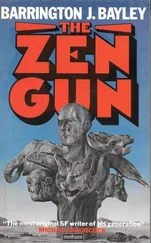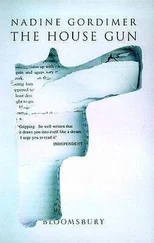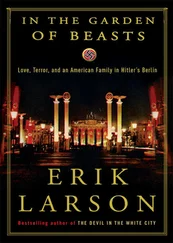The punch, of course, is dark red.
It was this lesson, above all, that Nicholas Elliot absorbed: when all else fails, maybe a gun can solve your problem.
CHAPTER THIRTEEN
NICHOLAS
TWO DIFFERENT TEACHERS TOLD LORA FARLEY that her mother, Karen, was either tending to a wounded teacher or comforting a teacher who had been chased. Both scenarios seemed plausible to her. That’s the kind of woman her mother was, always giving and always getting involved. “I was like, ‘Well, that sounds right too. I can see her doing both of them, but I don’t know how she could do it at the same time.’”
Soon afterward, a teacher asked Will and Lora to come out into the hall.
“And one of my teachers was standing there and she was staring off… like out into where all the trailers were. She like gave me a hug and then they said, ‘Take them back in the auditorium.’
“So we went back in the auditorium, and then about ten or twenty minutes later, they came and got us and they took us into Pastor Sweet’s office, and my pastor was there.” (The Farleys were members of a different church but sent their kids to Atlantic Shores.) “They never said that, you know, your mom has been shot or your mom is dead. They just—my pastor was crying, and then, I mean, we just sort of knew what had happened.”
♦ ♦ ♦
Sweet was at the hospital waiting as Sam Marino underwent emergency surgery. One of his assistants telephoned him there. “George, you need to get back here right away.”
“Why?”
“They found Karen Farley and she’s dead.”
♦ ♦ ♦
“She came at you?” Det. Donald Adams asked Nicholas as their conversation proceeded.
Nicholas nodded.
“Did she say something to you about the gun?”
“She did say something, but I didn’t really hear her.”
“Then what did you do? You didn’t want her to take the gun, so what did you do?”
“It went off again.”
“Do you know how many times?”
“Once, I think. I’m pretty sure once.”
Adams spent the next few moments trying to pin Nicholas down on exactly what had occurred and in what order. Periodically his mother inserted questions and urged Nicholas to tell the truth.
“I know I went in there and she wanted the gun,” Nicholas said. “… She was saying something, but I didn’t hear her. She was coming at me and the gun went off.”
Mrs. Elliot asked impatiently, “You didn’t hear what she was saying?”
“I’m not deaf,” Nicholas said.
But he could not remember.
♦ ♦ ♦
Bill Farley learned of his wife’s death about two o’clock that afternoon from his pastor, who arrived accompanied by a female police officer. The Virginia Beach police had not found Mrs. Farley until ninety minutes after the shootings when the head count determined she alone was missing. A teacher saw her through the window in her trailer, but could not reach her because the door was locked. One of the Virginia Beach officers rushed over and broke the glass with his baton.
“It was unbelievable,” Farley said, recalling his reaction. “Nobody gets shot at a Christian school. It’s in a church building. Come on, get real. People don’t get killed in church.”
Detective Adams believes Karen Farley may have walked in on Nicholas as he was preparing his weapon before his return to the trailer where he encountered Sam Marino and Susan Allen. When police found her, she was still wearing her winter coat. The first bullet had struck her forearm before entering her torso, suggesting to investigators that she had raised her hand either to ask for the gun or to plead for her life, or perhaps merely in another of those magical efforts to defend against the bullet.
Nicholas fired twice, investigators found.
The first shot knocked her down. Next, they deduced, Nicholas walked over to her body and shot her again, firing downward at point-blank range—“execution style,” as the local press put it. The bullet passed through her body and lodged in the trailer floor. The formal cause of death as stated by the state medical examiner was “gunshot wounds of trunk perforating heart. Internal hemorrhage.”
The gun contained a half-empty magazine, one of the six fully loaded thirty-two-round magazines that Nicholas had brought with him to school. “It’s the only magazine of all the six that misfires,” Adams said with a touch of awe. “If he’d gotten one more round off, it would have stopped misfiring and he could have done whatever he wanted at that school.”
The next night, Lora and a friend, Jennifer Cook, picked out what Lora’s mother would wear for her funeral. They also wrapped Christmas presents that Mrs. Farley had hidden in a closet. Months later, in March 1989, Lora and Will would find yet another cache of presents salted away ever so secretly.
“I just try to think about the good times that we had together,” Farley told me as we spoke in the living room of his home. “I miss her, I wish she was still around.” He had remarried, but clearly the pain remained acute. He is a gravel-voiced man of the old school, but as he described his life after Karen’s death, his voice broke. “She was a person I spent almost twenty years of my life with. She was the mother of my children. We all have to go on and make the best of it, but it’s really hard. We were real close. We didn’t have any friends, like lots of people have friends—you know, where they have ‘Bob and Carol’ over all the time. We didn’t have anybody like that. We were each other’s best friends. I didn’t have anyone to talk to.”
The more Farley learned about the gun and the way Nicholas had acquired it, the angrier he became.
♦ ♦ ♦
Soon after Nicholas Elliot’s arrest, the state of Virginia formally charged him with one count of murder, four counts of attempted murder, and fourteen other related offenses. Three months later, in April 1989, Nicholas’s mother filed a $1 million lawsuit against Atlantic Shores Christian School, alleging the school should have known about the harassment aimed at her son, and had failed to monitor his emotional adjustment, thereby contributing to what the lawsuit describes as the “mental breakdown” that prompted Nicholas’s shooting spree. She later withdrew the suit.
On October 31, 1989, during a court hearing, Nicholas pleaded guilty to killing Karen Farley and to thirteen of the remaining charges. In return for his plea, the state agreed to drop the five least serious charges. During the hearing the prosecutor detailed the evidence against him. Nicholas sat at the defense table with his fingers in his ears.
On December 12, almost one year to the day since the shootings, Nicholas attended his sentencing hearing. The defense presented three character witnesses, including his mother and his barber, Jimmy Edney, who lived just across the street from Nicholas. Edney testified that he had known Nicholas ever since the boy had moved onto the block. He described how Nicholas had done his grocery shopping and tended his lawn after he had returned home from a stay in the hospital. “I wasn’t able to handle it,” Edney said. “… I never had any trouble out of him. He always correspond to me very well.”
Judge Alan E. Rosenblatt found the testimony unconvincing. “These were offenses that were deliberately and cold-bloodedly thought out by Nicholas Elliot,” he told the court. “If the gun had not jammed, there’s no question in my mind I’d be presiding over a mass murderer.” He described Nicholas as a “time bomb” that had finally exploded. “In this court’s opinion,” he said, “he’s a time bomb that could go off again.”
He asked Nicholas if he had anything to say before he pronounced sentence.
Читать дальше








![Ричард Деминг - Whistle Past the Graveyard [= Give the Girl a Gun]](/books/412176/richard-deming-whistle-past-the-graveyard-give-t-thumb.webp)



